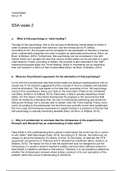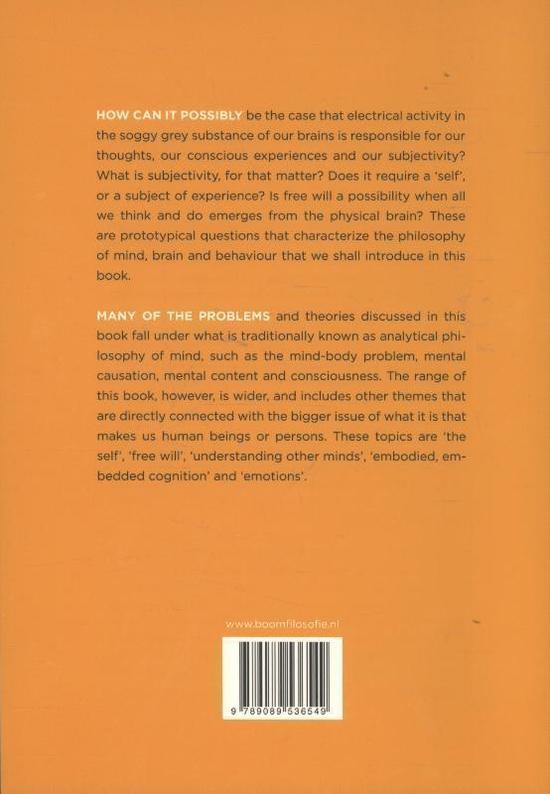Yvette Balata
Group 19
SSA week 2
a. What is folk psychology or ‘mind-reading’?
The idea of folk-psychology, that is, the process of attributing mental states to others in
order to predict and explain their behavior, was first introduced by W. Sellars.
According to him, this process can be compared to the postulation of theories in science,
when unobservable properties are used to explain an observable phenomenon (Slors, de
Bruin, & Strijbos, 2015). Furthermore, folk-psychology can be considered in line with
mental holism as it accepts the idea that various mental states can be ascribed to a parti-
cular behavior. Finally, according to Sellars, this process is also extended to the “self”,
meaning that people apply this “mind-reading” ability to themselves too by explaining
their own behavior in terms of their mental states (Slors, de Bruin, & Strijbos, 2015).
b. What are Churchland’s arguments for the elimination of folk psychology?
In line with the connectionist idea that mental states are abstract representations with no
causal role, P. Churchland suggested that the concept of mind is outdated and therefore
must be eliminated. This was based on the idea that, according to him, folk-psychology
could not be considered a theory as it fails on the most basic criteria to be considered
one (Slors, de Bruin, & Strijbos, 2015). Particularly, it fails in actually explaining mental
states. For this reason Churchland emphasized the progress in the neuroscience field
which he viewed as a discipline that, not only is continuously advancing and accommo-
dating new findings, but is actually able to explain what the “mind-reading” theory never
could. According to the philosopher, the fact that many scientific terms have substituted
the once used commonsense expressions to explain behavior is evidence of the fact that
folk-psychology is naturally becoming obsolete (Slors, de Bruin, & Strijbos, 2015).
c. Why is it problematic to conclude that the chimpanzee in the experiment by
Premack and Woodruff has an understanding of false belief?
False belief is “the understanding that a person’s belief about the world may be in contra-
st with reality” (Nirit Bauminger-Zviely, 2013). According to D. Dennet, this belief was ne-
cessary to prove the existence of a theory of mind. On this basis, he deemed the 1978
experiment conducted by D. Premack and G. Woodruff as insufficient (Slors, de Bruin, &
Strijbos, 2015). The reason for this is that the experiment was not designed to put the
chimpanzee in a position where it needed to predict someone else’s behavior based on
false beliefs it needed to attribute to that person. Therefore, it is not possible to determine
whether the chimpanzee’s answers where simply a product of its own perception of the
problem rather than actual understanding of intentions.






